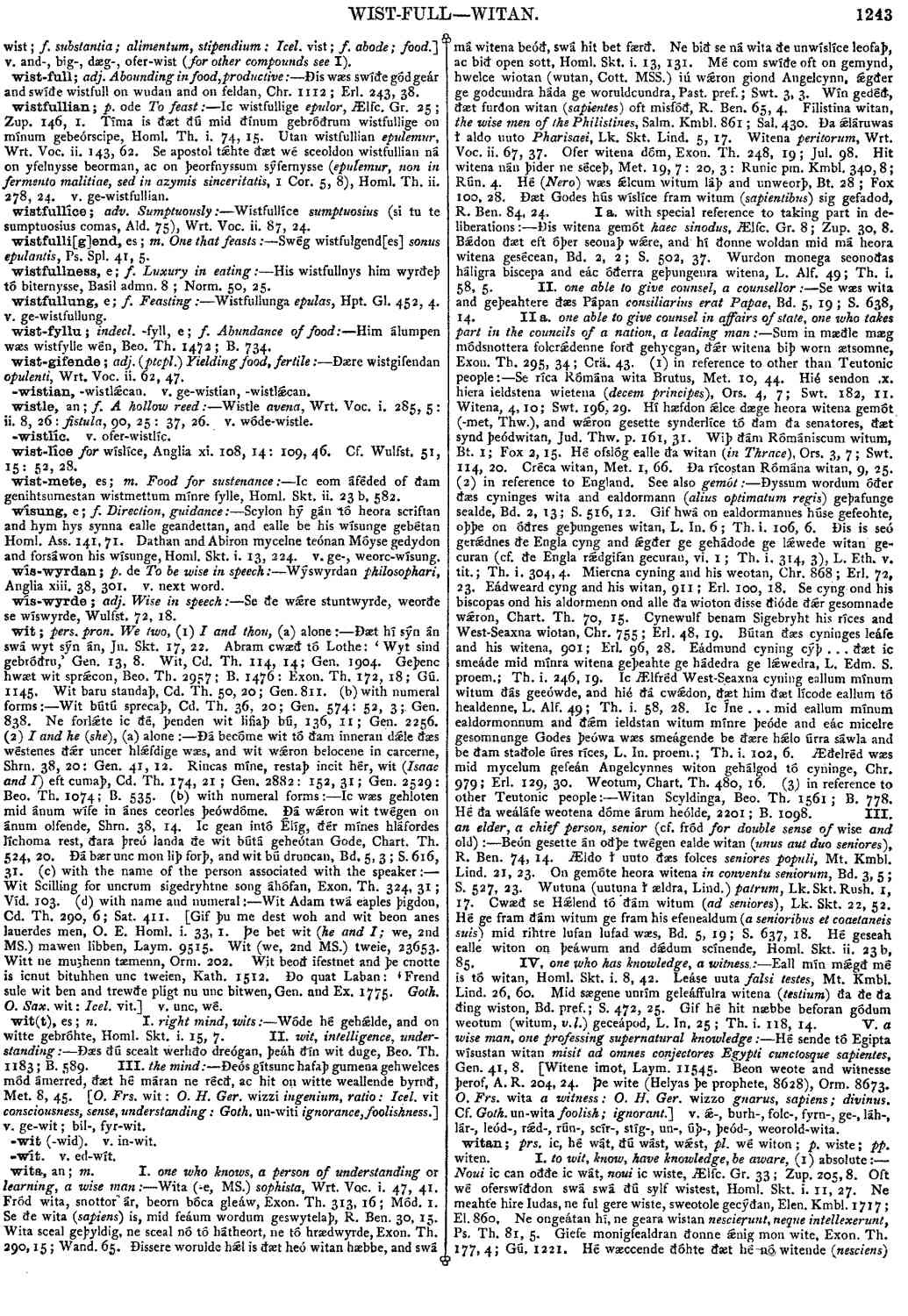wit
- pronoun
-
Ðæt hí sýn án swá wyt sýn án,
- Jn. Skt. 17, 22.
-
Abram cwæð tó Lothe: 'Wyt sind gebróðru,'
- Gen. 13, 8.
-
Wit,
- Cd. Th. 114, 14 ;
- Gen. 1904.
-
Geþenc hwæt wit sprǽcon,
- Beo. Th. 2957 ;
- B. 1476 :
- Exon. Th. 172, 18 ;
- Gú. 1145.
-
Wit baru standaþ,
- Cd. Th. 50, 20 ;
- Gen. 811.
-
Wit bútú sprecaþ,
- Cd. Th. 36, 20 ;
- Gen. 574: 52, 3 ;
- Gen. 838 .
-
Ne forlǽte ic ðé, þenden wit lifiaþ bú,
- 136, 11 ;
- Gen. 2256.
-
Ðá becóme wit tó ðam inneran dǽle ðæs wéstenes ðǽr uncer hlǽfdige wæs, and wit wǽron belocene in carcerne,
- Shrn. 38, 20 :
- Gen. 41, 12 .
-
Rincas míne, restaþ incit hér, wit (Isaac and I) eft cumaþ,
- Cd. Th. 174, 21 ;
- Gen. 2882: 152, 31 ;
- Gen. 2529 :
- Beo. Th. 1074 ;
- B. 535.
-
Ic wæs gehloten mid ánum wífe in ánes ceorles þeówdóme. Ðá wǽron wit twégen on ánum olfende,
- Shrn. 38, 14.
-
Ic gean intó Élíg, ðér mínes hláfordes líchoma rest, ðara þreó landa ðe wit bútá geheótan Gode,
- Chart. Th. 524, 20.
-
Ðá bær unc mon liþ forþ, and wit bú druncan,
- Bd. 5, 3 ;
- S. 616, 31 .
-
Wit Scilling for uncrum sigedryhtne song áhófan,
- Exon. Th. 324, 31 ;
- Víd. 103.
-
Wit Adam twá eaples þigdon,
- Cd. Th. 290, 6 ;
- Sat. 411.
- O. E. Homl. i. 33, 1.
- 2nd MS.
- Laym. 9515.
- 2nd MS.
- 23653.
- Orm. 202.
- Kath. 1512.
- Gen. and Ex. 1775.
Bosworth, Joseph. “wit.” In An Anglo-Saxon Dictionary Online, edited by Thomas Northcote Toller, Christ Sean, and Ondřej Tichy. Prague: Faculty of Arts, Charles University, 2014. https://bosworthtoller.com/36086.
Checked: 1